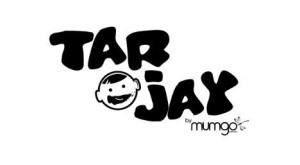By Jeremy Szwider
Australians have a penchant for jocular nicknames. And we're not just talking on the footy field. Aussie jargon even stretches to the corporate space. Take these for examples:
- petrol stations are 'servos';
- the Salvation Army is the 'Salvos'.
For the most part, businesses have embraced these affectionate monikers given by the public. Some have even incorporated them as part of their cultural association with the Australian public. 'Fair dinkum', McDonalds even formally named some of their restaurants 'Maccas'. These nicknames show a strong association with the brand that it is often accompanied by the goodwill of the business.
Recent cases, right on target
A recent decision considered the use of a trade mark as a parody in Target Australia Pty Ltd v Catchoftheday.com.au Pty Ltd [2015] ATMO 54. In this instance, it was Target's affiliation with its nickname 'Tar Jay' that prevailed in its trade mark battle with online retailer Catchoftheday.com.au. For international readers, Target in Australia operates a chain of department stores offering clothing, footwear, accessories and homewares. Target is recognised for selling affordable goods, much like Walmart in the US or Tesco in the UK.
Let's have a look at what happened when another retailer applied to register 'Tar Jay':
- Mumgo Pty Ltd (a subsidiary of CatchOfTheDay) operates an online retail store via mumgo.com.au that sells baby and children's goods.
- Mumgo applied for the registration of the composite marks, in reference to its own brand of baby clothing, as follows:
-


- many people refer to Target colloquially as 'tar-jhey or 'tar-jay', a tongue-in-cheek French pronunciation which entered the urban slang in the 1980s to 'make it more upscale than it is'1.
- in defending its registration, CatchOfTheDay conceded the trade mark was a 'cheeky' reference to Target but insisted it to be a parody and not likely to mislead or deceive. Further, Target had never 'embraced or used' the 'Tar Jay' nickname as McDonalds had with 'Maccas'.
- the Hearing Officer held that use of the trade mark would indeed be confusing as the Target mark and its nickname was very well-known to the public. The fact that Target had itself not used the nickname was not a decisive factor.
A para on parody
The case discussed the concept of a parody and held that each case should be considered individually on its facts. Business owners should be aware that claiming their trade mark is a parody is not, on its own, a defence against infringement.
The Hearing Officer stated that the opposed trade mark should be instantly 'recognisable as both a parody and distinct from the original'. Here are 2 guiding tips:
- the mark must not just be a poor imitation but should be one of amusement to the customer instantly recognising it as a parody.
- the mark should not confuse the public into thinking that there is a strong association between the original owner and the trade mark and hence likely to deceive and mislead.
This decision indicates it may be costly to attempt to trade mark nicknames of companies which are well recognised in the public, even for parody purposes. It is also a prompt for brand owners to be prudent in protecting their brands as even an affectionate nickname may not be safe from misuse.
Footnotes
The content of this article is intended to provide a general guide to the subject matter. Specialist advice should be sought about your specific circumstances.